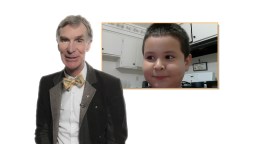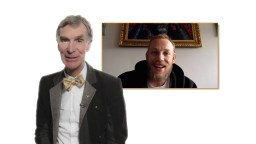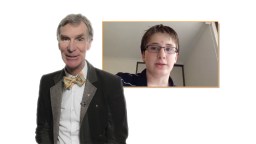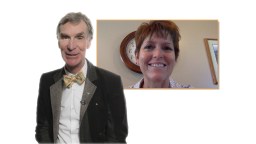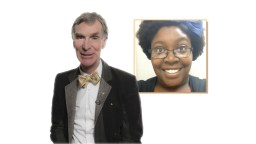It’s #TuesdaysWithBill, our weekly segment featuring everyone’s favorite Science Guy answering viewer questions. Today, rising high school senior Wesley asks Bill for career advice. Is it a problem if you’re a teenager and don’t know what kind of career you want? (The answer: Of course not.) Plus, how did Bill get involved in engineering?
It turns out the man who would eventually become the Science Guy didn’t know anything about engineering until he landed a job in a bike shop. From there, the self-proclaimed social misfit found his way toward mechanical engineering, mostly because he enjoyed (and still enjoys) tinkering with things. So if you’re a tinkerer, consider some form of engineering. It’s an important field that people really rely on.
As for career pursuits, you can’t let social and academic pressures force you into a field you won’t enjoy or succeed in. It’s okay to be unsure of your future at 18. Heck, it’s almost required to be unsure about a lot of things at 18. Wesley, like so many who came before him, will be just fine.
Wesley Connelly: Hello Bill. My name is Wesley Connelly. I’m a huge fan of your works. I’m a soon-to-be senior in high school and like many I do not know what I want to do with my life. I love physics, chemistry, just about every science. My question is why did you pursue engineering and what advice do you have for someone who can’t choose what they want to do in terms of a career? Thanks and keep up the good work.
Bill Nye: Wesley, that’s a great question. I had never heard of engineering really until I got a job at a bike shop. Now I am a tinkerer. My friends make fun of me. I am "shiny object" man. I am constantly rewiring things. I’m constantly adjusting this. I live in an apartment building. I’m constantly tweaking little stuff in the building and the building managers are very nice about it. Trying to improve the building. So what I would say is engineers use science to solve problems and make things. So if you find yourself a tinkerer — you mentioned chemistry and physics. These are very traditional engineering disciplines. Everything in the room where you’re sitting, everything that created this computer or scientific principle that allowed the creation of these cameras and this computer came out of somebody’s head. And in general, that person was an engineer, in general. And people make fun of engineers because traditionally we are social misfits that can’t get a date and so on. But people rely on us and so becoming a full-time scientist was never really something I thought of.
But I worked at a bike shop. There was an older guy there who was in engineering school and he was very proud of it. And he talked continually about strength of materials, the alloys that make up different parts of the bicycle. And I just thought it was cool. And so there are two things that have always charmed me. Bicycles and airplanes. And that’s what mechanical engineering is. And you’ll hear the expression of mechaero — mechanically aerospace. And that was my thing. And so looking back, though, I’ve got to say I might have been better as an electrical engineer. I spent a lot of time with wiring and voltages and amperages and transistors and capacitors. I spent a lot of time with that. I might have actually had a better intuition in that branch. But I played the hand I was dealt. So if you have an interest in tinkering and I’ve got a suspicion that you do, look into engineering schools. And you don’t have to decide right away man. Go to college and see what you think, you know. Just don’t beat yourself up. You’ll find your way. But I’m very proud of my engineering background. I have a license that I keep current and every day I do some engineering thing and just about every day I do some algebra. When you take that much physics, that sort of fundamental, you-can-get-to-the-answer-quickly math becomes just intuitive and it’s a real — it’s just a great skill. Go for it.


